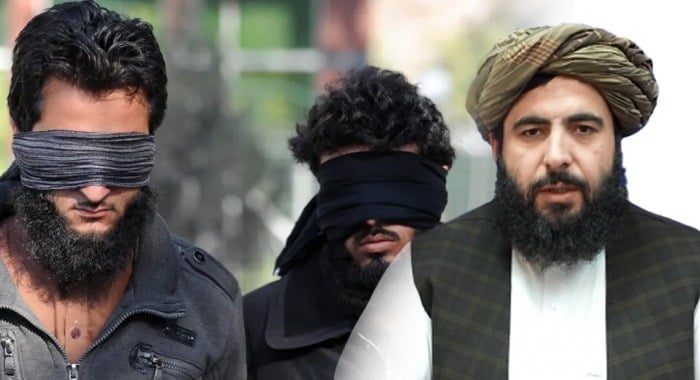In yet another episode of contradiction disguised as counter-terrorism, pro-Taliban social media accounts this week reported the arrest of two alleged Islamic State Khorasan Province (IS-KP) operatives, despite the group’s continued public insistence that ISIS has been “eliminated” from Afghanistan.
One of the suspects, Delbar Khan, reportedly hails from Kunar province and was arrested in Nangarhar, both known hotspots of IS-KP activity. The second individual was caught attempting to plant an improvised explosive device at a Shia place of worship in Herat, according to Taliban-linked sources.
The timing of the arrest couldn’t be more politically fraught. As the Islamic month of Muharram begins, the Taliban has intensified pressure on Shia communities to limit public gatherings, citing security concerns, namely the threat of IS-KP attacks. In Herat, those tensions reportedly boiled over when Taliban forces attempted to dismantle Muharram tents in the Jibril district, sparking clashes with local Shia residents.
So if ISIS has been “completely suppressed”, as the Taliban repeatedly claims, what are these men being arrested for? And why the sudden urgency to stifle Shia religious expression in the name of preventing IS-KP violence?
Observers say this is the Taliban’s familiar two-faced strategy: deny the presence of IS-KP for international optics, while quietly justifying crackdowns and extrajudicial actions on the ground in its name.
“Either IS-KP still exists and poses a serious threat, or the Taliban is using the spectre of IS-KP to justify arrests, executions, and sectarian repression,” said one regional analyst. “You can’t have it both ways, unless the goal is never clarity, but control.”
This latest pattern follows the Taliban’s gruesome execution of three alleged IS-KP commanders in Kunar last week, an act that was publicly flaunted on pro-Taliban platforms just hours after Taliban officials assured the world that ISIS is no longer operational in the country.
As arrests continue and Muharram unfolds under heavy Taliban scrutiny, the regime’s narrative continues to unravel. Whether through public executions, back-channel arrests, or the policing of minority communities under the pretext of security, the Taliban’s war on ISIS appears less like a counter-terrorism campaign, and more like a public relations performance wrapped in authoritarian repression.





